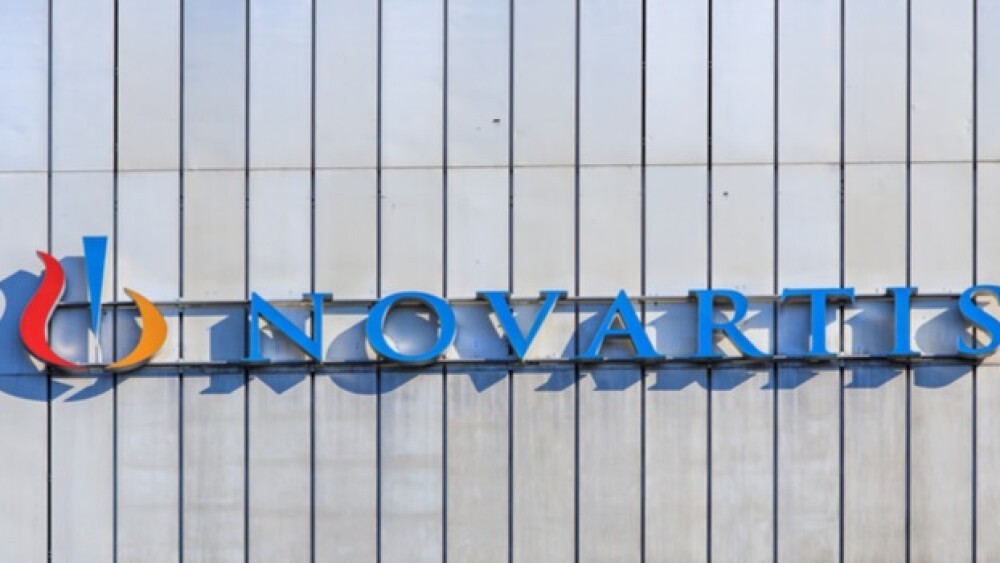Novartis will pay $310 million upfront for the Boston-based inflammation company IFM Tre. IFM TRE is very much an early-stage company, with one compound, IFM-2427, in an early Phase I clinical trial, and two preclinical assets.
Denis Linine / Shutterstock
Novartis announced it is acquiring IFM Tre, a subsidiary of IFM Therapeutics, in a deal that could reach $1.6 billion.
Zurich, Switzerland-based Novartis will pay $310 million upfront for the Boston-based inflammation company IFM Tre. IFM TRE is very much an early-stage company, with one compound, IFM-2427, in an early Phase I clinical trial, and two preclinical assets.
IFM Tre focuses on developing anti-inflammatory drugs that target the NLRP3 inflammasome. The nucleotide-binding domain, leucine-rich repeat-containing receptor pyrin domain containing 3 (NLRP3) pathway is critical to the body’s innate immune system. It helps recognize bacteria, viruses and other signals of tissue damage or metabolic disorders. When the NLRP3 pathway is activated, it triggers an inflammatory response by way of inflammasomes, which are a multi-protein complex.
Preclinical research has shown that IFM Tre’s compounds can selectively suppress inflammation caused by the NLRP3 inflammasome while letting the rest of the immune system continue normally.
“IFM Tre’s compounds have demonstrated that they can fine-tune the immune system, offering a potentially potent approach for treating a large variety of diseases associated with inflammation,” stated Jay Bradner, president of the Novartis Institutes for BioMedical Research. “We look forward to applying our deep expertise in this field to advancing these medicines through the clinic and to patients who need them.”
The three compounds in the IFM Tre pipeline are IFM-2427, which is being developed for chronic inflammatory disorders including gout, atherosclerosis and nonalcoholic steatohepatitis (NASH); a preclinical asset to treat inflammatory bowel disease; and another preclinical-stage central nervous system (CNS)-penetrate compound.
Novartis also indicates there is interest in investigating how IFM’s NLRP3 portfolio will act in central nervous system disorders like Alzheimer’s and Parkinson’s, in addition to cancer and NASH.
Novartis is acquiring all outstanding capital stock of IFM Tre. IFM Tre will be eligible for downstream milestone payments as well as the $310 million upfront payment.
This is the second large deal IFM Therapeutics has made in less than two years. In August 2017, Bristol-Myers Squibb acquired IFM’s preclinical STING and NLPR3 agonist programs for cancer. For that deal, Bristol-Myers Squibb paid $300 million upfront and up to $2 billion in milestones.
It was at that time that its non-oncology assets were spun out as IFM Tre and IFM Due. IFM Tre is focused on the NLRP3 antagonist portfolio. IFM Due focuses on cGAS/STING antagonists for serious inflammatory and autoimmune diseases.
“Since founding IFM in 2015, our team has worked tirelessly to build a portfolio of next-generation small molecule medicines that exploit the innate immune system as a new therapeutic target,” stated Gary D. Glick, chief executive officer and co-founder of IFM Therapeutics. “Today’s announcement markets a significant milestone in the development of next-generation therapies for serious inflammatory conditions. Based on substantial preclinical and translational data, we believe NLRP3 inhibition represents a novel approach to preventing the overactive inflammation that drives the onset and progression of numerous metabolic, fibrotic, autoimmune and neurological diseases.”
IFM Therapeutics was co-founded less than four years ago by Glick and Atlas Venture. It was seeded by an initial financing in October 2015 and incubated early inside of Atlas. In that short period, two therapeutics programs made it to the clinic, a third is about to enter first-in-human (FIH) clinical trials and three more are in advanced preclinical studies. In that time, they have raised less than $60 million in equity capital and generated $610 million in upfront payments and future milestones that could exceed $3 billion.





